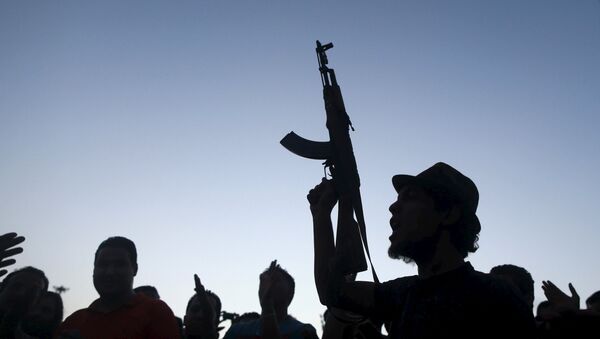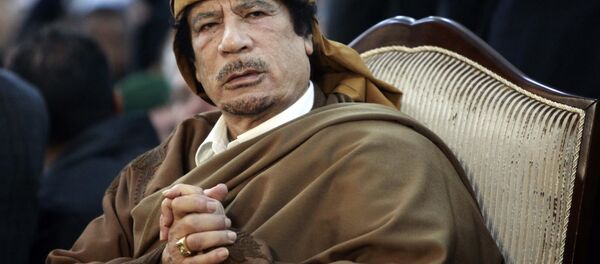Asquith, who served as Britain's ambassador in Tripoli from 2011 to 2012, said the US-led military intervention in the first Libyan civil war to assist opposition forces fighting against Gaddafi's government led to a vacuum in the aftermath caused by a failure to work with the new government to rebuild the nation.
In 2011, the United Nations passed resolution 1973 which called for "an immediate ceasefire in Libya, including an end to the current attacks against civilians, which it said might constitute crimes against humanity"… "imposing a ban on all flights in the country's airspace — a no-fly zone — and tightened sanctions on the Gaddafi regime and its supporters."
— Daniel Kawczynski MP (@KawczynskiMP) October 27, 2015
Just asked Sir Dominic Asquith what role there could be for constitutional monarch in Libya. Reply; "not inconceivable"
— Daniel Kawczynski MP (@KawczynskiMP) October 27, 2015
This led to a coalition of forces, including the US, the UK and France leading a NATO military attack to topple Gaddafi, who was eventually killed. Despite the new Libyan Government calling for the NATO mission be extended to the end of 2011, the UN Security Council voted to end NATO's mandate for military action.
Four years on, the country has been ravaged by civil war with two alternative governments having been set up, as well as fighting between countless differing groups. Asquith said:
"[The West had] effectively sub-contracted to the United Nations to do the rebuilding. I don't think the UN at that point was equipped to do so. I think we should have been much more proscriptive with the Libyan political leaders about what were their priorities and where we were going to help them."
"Bear in mid they were inheriting an administrative capacity which had been destroyed by Gaddafi over 40 years.
"We missed the opportunity at the turn of 2011-12 and consistently, thereafter, in terms of dealing with the armed groups who were provided the licence by the political leadership to provide security in the absence of any other force."
"Inevitable they grew like topsy. 25,000 people actually took part in the revolution. By the time I left there were about 140,000 to 150,000."
Key Moment Missed
He said western nations missed a key opportunity to step into the civil war following the killing by Islamic militants of the US Ambassador to Libya John C. Stevens.
"That's the point, I hear time and again, that — if the international community had stepped in and said 'we're behind you, you on the streets… we need to support you in that protest' — then maybe we could have changed the balance."
According to Amnesty International, lawless militias and armed groups on all sides of the conflict in western Libya are carrying out rampant human rights abuses, including war crimes.
In October 2014, Hassiba Hadj Sahraoui, Deputy Director for the Middle East and North Africa Programme said:
"In today's Libya the rule of the gun has taken hold. Armed groups and militias are running amok, launching indiscriminate attacks in civilian areas and committing widespread abuses, including war crimes, with complete impunity."
Four years after the US-led coalition of western forces attacked Libyan Government forces in an effort to topple Muammar Gaddafi before turning its back on the nation which imploded into civil war, the United Nations has finally proposed a unity government, which is still under negotiation.



